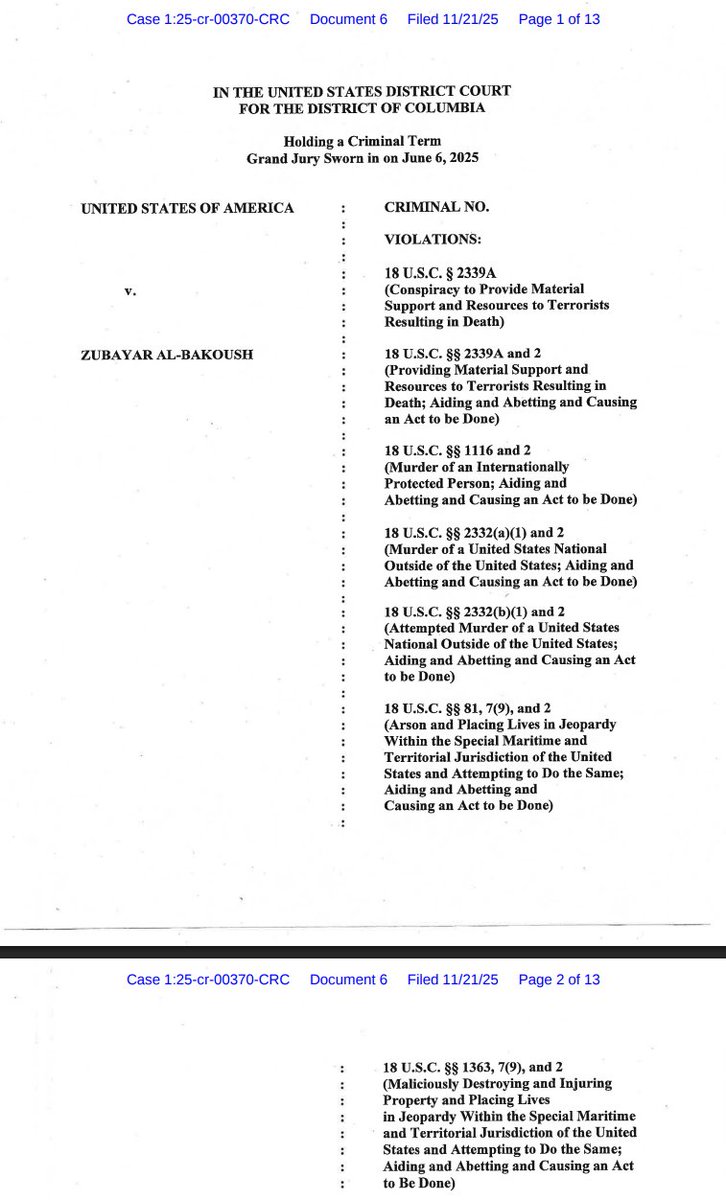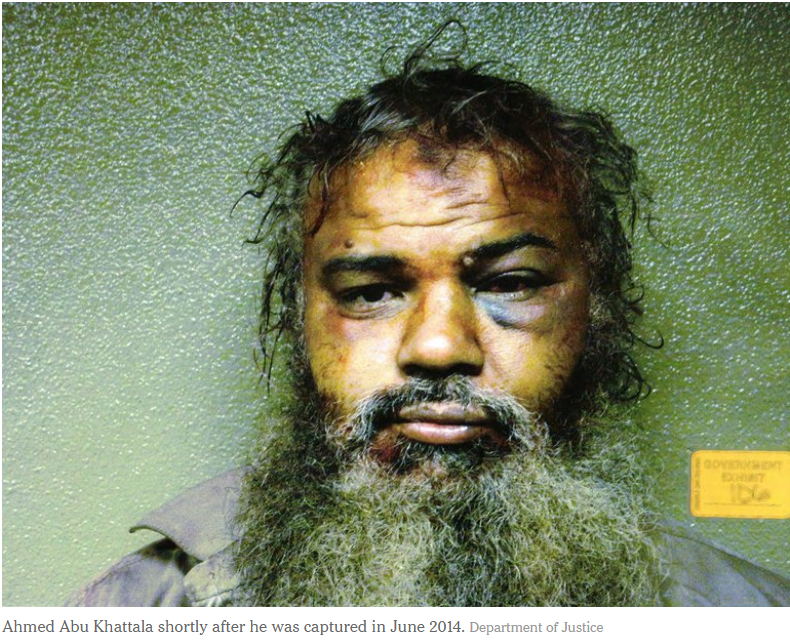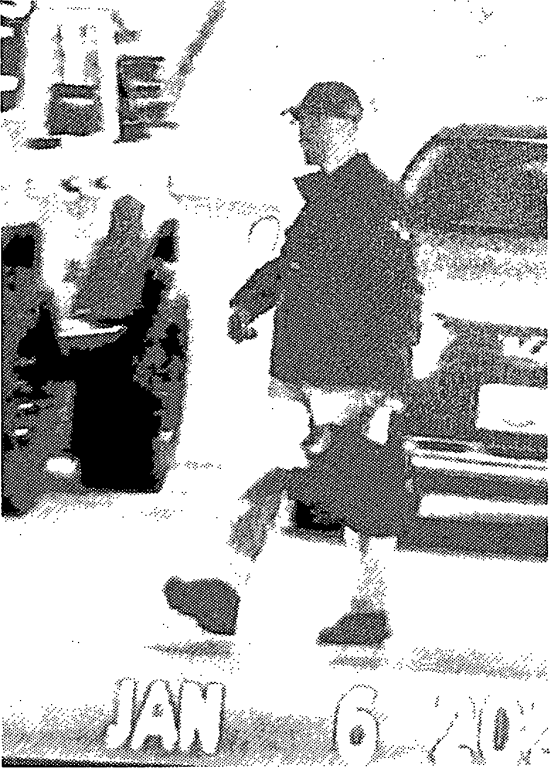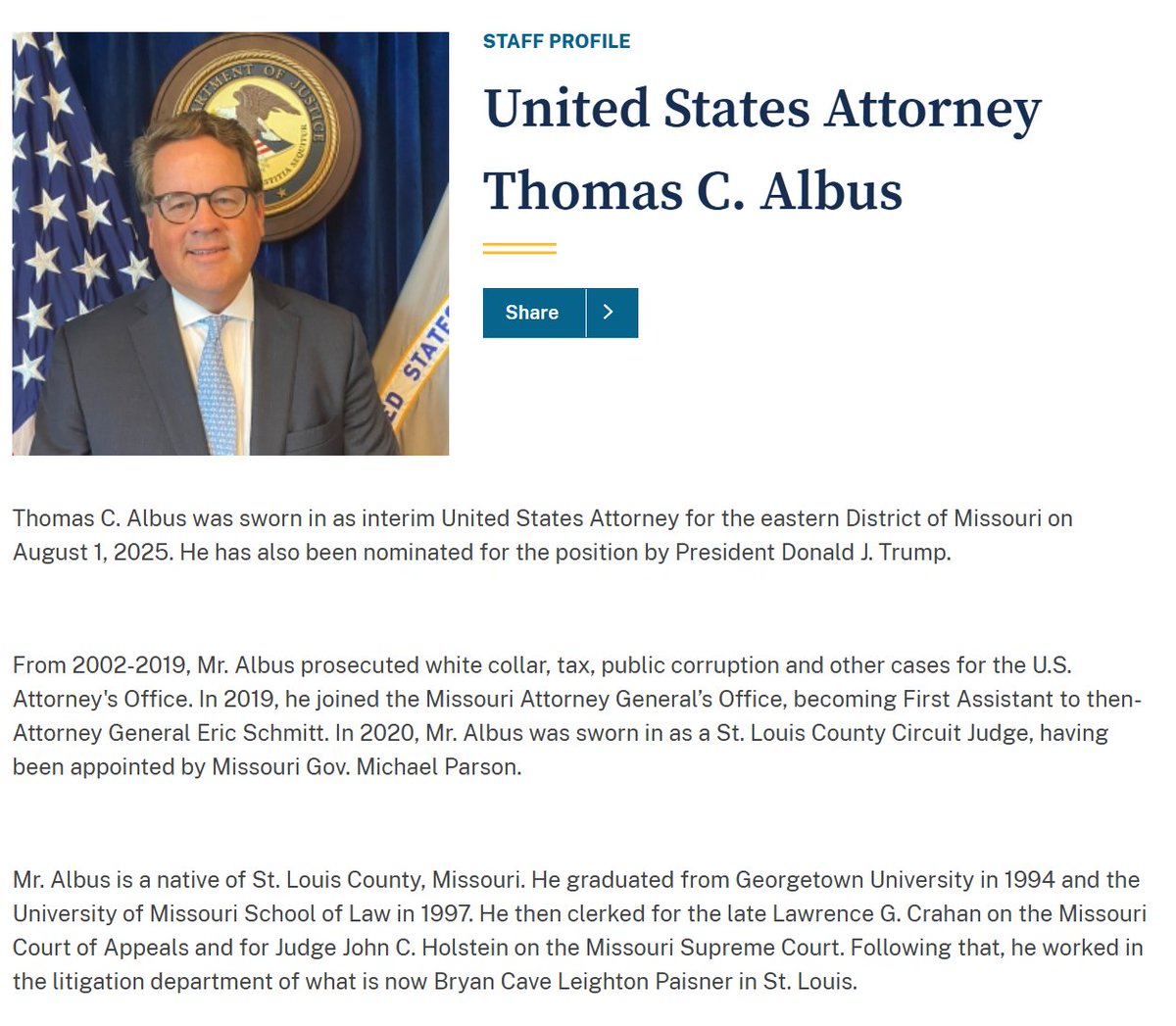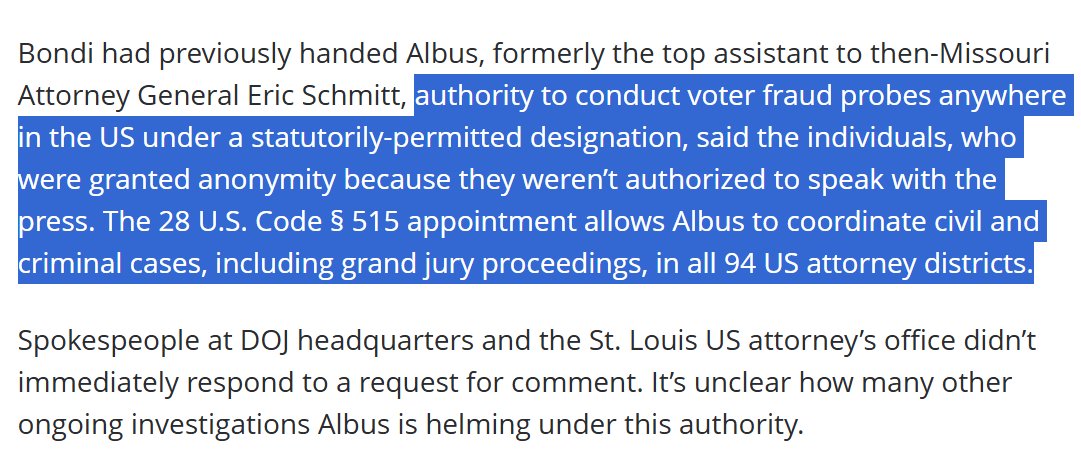"A federal judge expressed deep skepticism Thursday about whether a federal prosecutor handpicked by President Donald Trump to bring criminal cases against his political rivals was legally appointed to the role."
U.S. District Judge Cameron Currie promised she would rule on the matter before Thanksgiving.
U.S. District Judge Cameron Currie promised she would rule on the matter before Thanksgiving.
https://x.com/realjusthuman/status/1989038479188152659
The grand jury transcripts "confirmed that “Ms. Halligan acted alone,” without any other government attorneys in the room. That could threaten both cases if Currie ultimately decides Halligan was invalidly appointed" 

"a portion of the grand jury proceedings that led to Comey’s indictment was “missing,” leaving certain aspects of Halligan’s interactions with the grand jury unreviewable." 

"Justice Department attorney Henry Whitaker urged Currie to treat questions about Halligan’s appointment as, at most, a “paperwork error” and emphasized that Bondi had reviewed the grand jury materials and agreed to retroactively “ratify” Halligan’s actions, even if her initial appointment is deemed invalid."

“It became obvious to me that the attorney general could not have reviewed those portions of the transcript presented by Ms. Halligan,” 
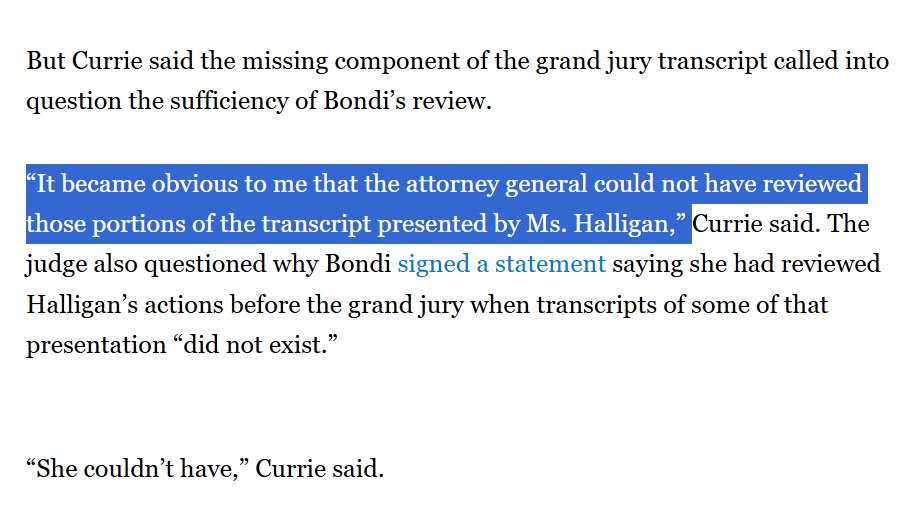
"Attorneys for Comey and James said it’s not possible for the Justice Department to retroactively empower a prosecutor who acted without legitimacy to secure an indictment." 

"In one head-turning moment, Whitaker said the Justice Department takes issue with one aspect of U.S. District Judge Aileen Cannon’s ruling last year tossing special counsel Jack Smith’s prosecution of Trump on charges related to classified documents kept at Mar-a-Lago. Whitaker said Cannon went too far..."
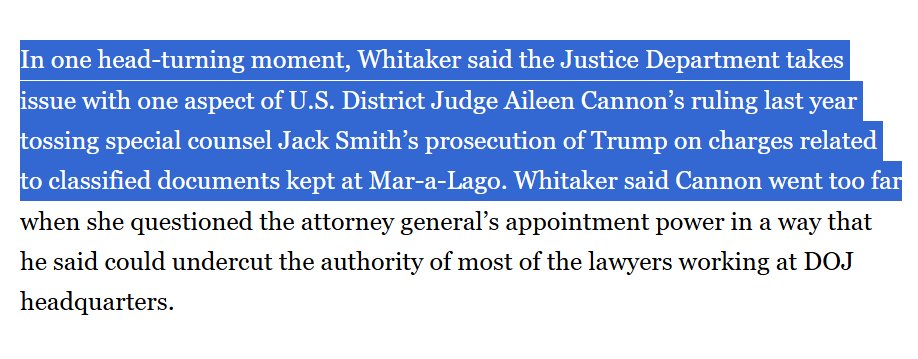
"The issue could have relevance for Halligan’s appointment, since Bondi’s recent order claims to retroactively appoint Halligan as a DOJ prosecution under several alternative statutes" 

"Defense attorneys also pressed Currie to treat her role in a more grandiose context: the preservation of the separation of powers and checks on presidential power." 
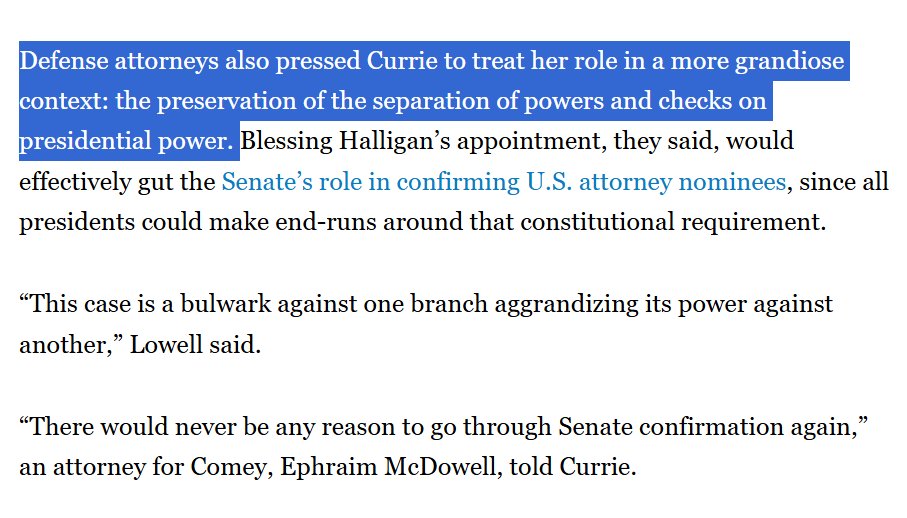
"Currie seemed to tip her hand in her first question Thursday, asking if Comey’s defense attorneys had seen the ”declination memo” related to the case."
They have not.
They have not.

"In those cases, judges ruled that even though the appointees were disqualified, the cases they supervised could continue because other career prosecutors had signed off on them."
Only Halligan signed off on the Comey and James cases.
Only Halligan signed off on the Comey and James cases.

I've been covering the Comey case filing by filing, and the issue of Halligan's appointment has been one of the most interesting and critical aspects of the case.
I was of two minds on the Smith Special Counsel appointment. It was perhaps a "paperwork error" as well to make him special counsel, and he should have been a "special attorney."
As Bondi has now made Habba and Halligan.
On Halligan's appointment, after reading DOJ's filing, I find myself mostly in agreement with DOJ, though I remain skeptical of the retroactive aspect of it.
I was of two minds on the Smith Special Counsel appointment. It was perhaps a "paperwork error" as well to make him special counsel, and he should have been a "special attorney."
As Bondi has now made Habba and Halligan.
On Halligan's appointment, after reading DOJ's filing, I find myself mostly in agreement with DOJ, though I remain skeptical of the retroactive aspect of it.
I covered Comey's motion to dismiss for unlawful appointment in this episode and was pretty convinced by it.
And I went through the response from DOJ in this episode. By the end of it, my mind was changed.
• • •
Missing some Tweet in this thread? You can try to
force a refresh



